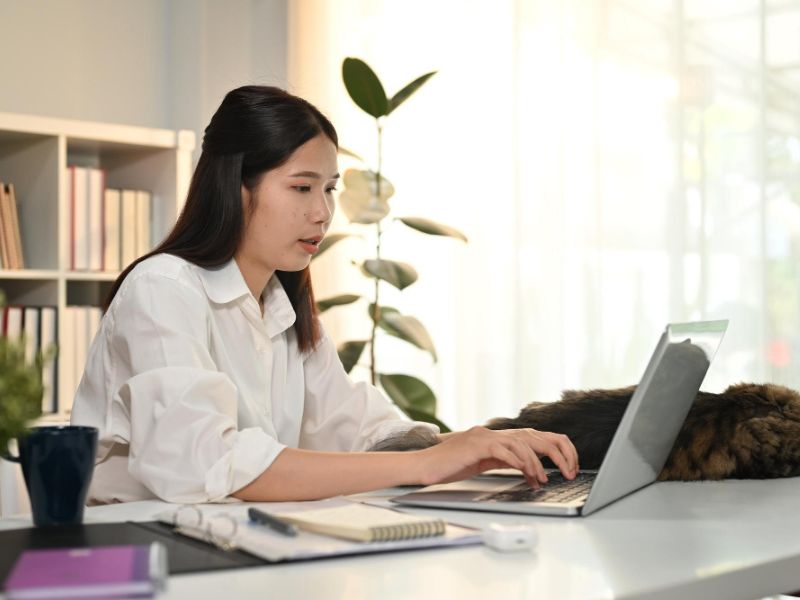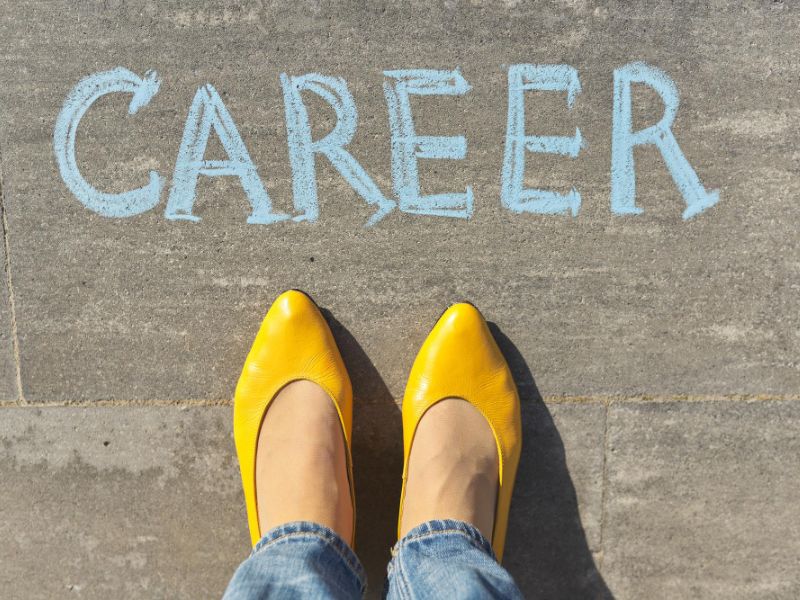There’s no denying that the past 18 months have radically changed both the corporate world and our home life more or less overnight.
Location-bound jobs are quickly becoming a thing of the past. While this may be music to the ears of many, for others, the burden of juggling remote work together with parenting and other household responsibilities may feel like far too much. As the festive period fast approaches, this imbalance is only set to get worse.
Research has shown that even during the pandemic, things have not fallen equally on men and women, and worryingly McKinsey’s D&I report for the year has concluded that pre-existing inequalities have only been amplified by COVID-19, citing that women have, in fact, faced a disproportionate level of work-related stress when compared with men during this time – largely due to trying to balance professional and domestic workload. Job losses have impacted more women than men, due to higher participation in service related industries heavily impacted by the pandemic. For the women who are still employed, they are still paid less for the same work as their male counterparts, and must work that much longer to attain the same salary.
Domestically, women aren’t faring much better. There have long been inequalities in the gendered distribution of housework between men and women with both genders often (mis)perceiving who contributes more and sadly, very little has changed this year. The toll of these imbalances are only amplified during this unprecedented period, and cannot be ignored. As wonderful as the holidays may be, and as much as we are all ready to enjoy some much-needed down time, there is no escaping the fact that many women will continue to bear the brunt of the domestic labour during this time, whether or not they are the breadwinner.
Women have been socialised to believe that we “should” be able to it all and, during this time of year, that involves clocking off work in order to cook the perfect festive meal, in our immaculate homes, with our hair done flawlessly, as our well-behaved children sit beaming up at us. This pressure is simply unrealistic and yet it doesn’t stop women from experiencing guilt, shame and more serious mental health implications for not being able to do it and be it all.
Working to uphold a falsehood is unsustainable. The holiday season can be stressful enough at the best of times, but with work and home life in more direct overlap than ever, women risk facing a lack of sleep, anxiety, and depression, and that’s just in the short-term. This continued pressure may also have devastating longer-term effects on the economy as one in four women dropping out of the workforce finally succumbing to the ridiculous notion that women should be able to work three jobs (professional, domestic and beauty labour) only getting paid for a mere half of one.
This holiday season I would strongly urge any women out there battling with exhaustion to take comfort in knowing that this is a completely normal response to living and working in an unequal society during the pandemic. We are witnessing a collective burnout of women everywhere as many realise the social safety net often doesn’t catch us; traditional means of support are not available. Unfortunately, the responsibility still lies with us to initiate the kinds of changes in our lives to mitigate this worryingly normalised situation.
A sincere reflection on the “shoulds” and expectations placed upon us may reveal we are striving to meet standards we don’t necessarily agree with, so, in addition to reducing expectations on ourselves, asking for help is critical. Maybe that involves requesting a clearer brief or additional time to complete a particular project at work, or perhaps it requires a frank conversation with a partner about more equitable division of domestic labour during the holidays, or asking your best friend if she can listen to you vent. Regardless of what it is, reaching out for support of any kind is not a weak move, but a smart one that is necessary in these difficult times.
Now that work and screen-time have become for many, synonymous, creating boundaries around work is even more important if we are to survive and enjoy the holidays. Set clear working hours for yourself, particularly if you have children or family members staying with you and communicate these. This will help to set expectations regarding your availability for everyone. Take advantage of automatic screen time limits available on many devices and when you’re at work avoid multitasking at all costs. As tempting as it may be to run a load of laundry or dishes while you’re working, these interruptions actually will result in a longer work day. Consider using time-blocking and productivity techniques such as the Pomodoro technique, which alternates between 25 minutes of focused work and five minute breaks. If you haven’t, try syncing your work up with your menstrual cycle. This can significantly affect energy levels and make some tasks easier than others depending on where you are in your cycle. Lastly, do not underestimate the simple act of checking in with yourself around your needs, energy levels and limits. It’s more than ok to let things slide, or to say no. This holiday season, as much as possible, give yourself the gift of rest.
 About the author
About the author
Laurel Anne Stark is the CEO and founder of resurgo.co, the only web-app designed to support self-employed women to succeed. Earlier this year, resurgo.co released the first-ever report looking into the state of female entrepreneur mental health, which showed that entrepreneurial women face an above average risk of mental illness due to gender obstacles, isolation and feelings of being overwhelmed – in addition to the usual stressors of self-employment – all of which is impacting their success. Having personally battled with, and recovered from, bankruptcy, burnout, and alcoholism during her 17 years of self-employment in tech, Laurel, a passionate mental health advocate, is now striving to take action in order to address the mental health crisis plaguing the world’s innovators.

















